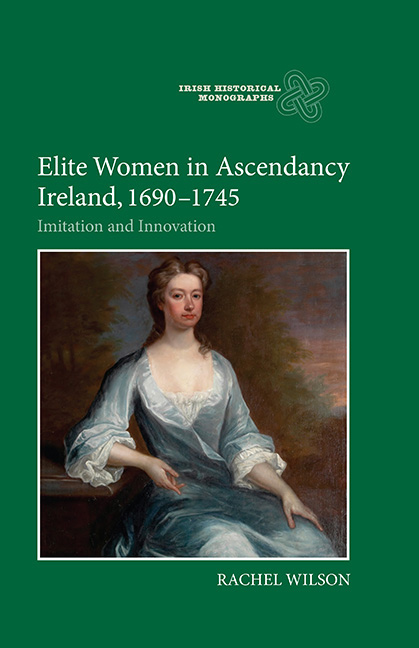Book contents
- Frontmatter
- Dedication
- Contents
- Acknowledgements
- Abbreviations
- A Note on the Presentation of Material in the Text
- Introduction
- 1 The Making and Breaking of a Marriage
- 2 Mothers and Children
- 3 The lady of the house
- 4 Widows, Guardians and Estate Managers
- 5 Society Queens
- 6 Political Players
- 7 Institutional philanthropy
- Conclusion
- Appendices: Family Trees
- Bibliography
- Index
7 - Institutional philanthropy
Published online by Cambridge University Press: 11 May 2021
- Frontmatter
- Dedication
- Contents
- Acknowledgements
- Abbreviations
- A Note on the Presentation of Material in the Text
- Introduction
- 1 The Making and Breaking of a Marriage
- 2 Mothers and Children
- 3 The lady of the house
- 4 Widows, Guardians and Estate Managers
- 5 Society Queens
- 6 Political Players
- 7 Institutional philanthropy
- Conclusion
- Appendices: Family Trees
- Bibliography
- Index
Summary
Looking through the wills left behind by elite women in or from Ireland during the Ascendancy period, one of most common features is a tendency to bequeath money for charitable purposes, much of which was to be funnelled through philanthropic institutions. Margaret Boyle, dowager countess of Orrery, who died in 1689, left £21 p.a. to erect an almshouse near Castlemartyr in County Cork, which was to care for six poor women. In 1748, Ann Brodrick, dowager Viscountess Midleton, left £700 to be divided among three Dublin hospitals and another £300 for schools. Both left money to be distributed to the poor of various named parishes, indicating that the money was to go through the church. Jane Bonnell, who passed away in 1745, stated this aim more clearly, specifically willing that £200 was to go to ‘the Minister, Churchwardens and Vestments of St. John's parish in Dublin to be by them laid out on some convenient purchase the produce of which to be applied towards binding out poor girls of that parish for ever’. Death imitated life, and establishments including, but not limited to, schools, churches and almshouses (which were also known as hospitals) were an attractive means of assisting the poor, as were workhouses. All allowed many people to be helped at once, conformed to a recognisable template which could theoretically be replicated across the country and were a far more structured and controlled method of distributing charity than giving it out to one individual at a time. Elite women's involvement with such places was present from the very beginning of the Ascendancy era, yet relatively little has been written on the subject.
Rosemary Raughter's work provides the best starting point, though she has focused on the later eighteenth century and on women's involvement in associated charity, that is, institutions founded, organised and run by women, for women and catering specifically to women's needs, including childbirth, childcare and the prevention or elimination of prostitution.
- Type
- Chapter
- Information
- Elite Women in Ascendancy Ireland, 1690-1745Imitation and Innovation, pp. 141 - 163Publisher: Boydell & BrewerPrint publication year: 2015



